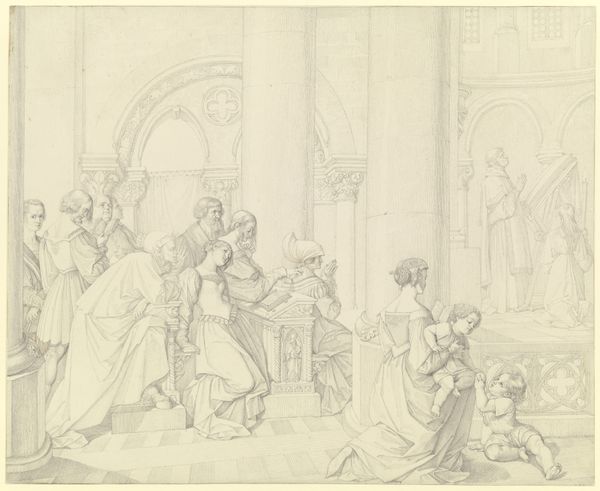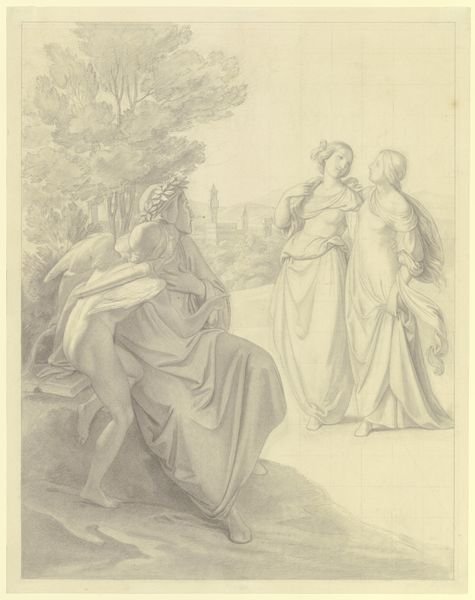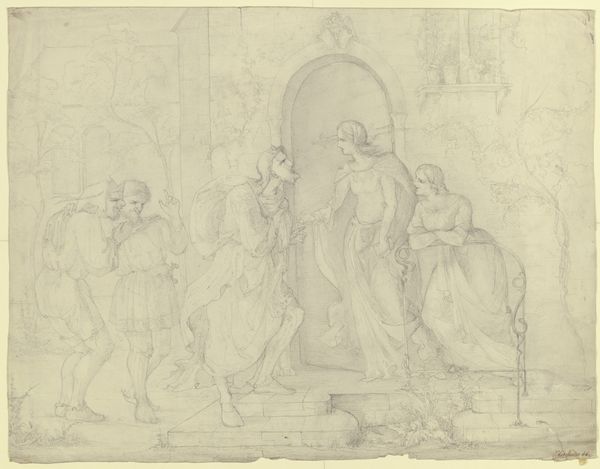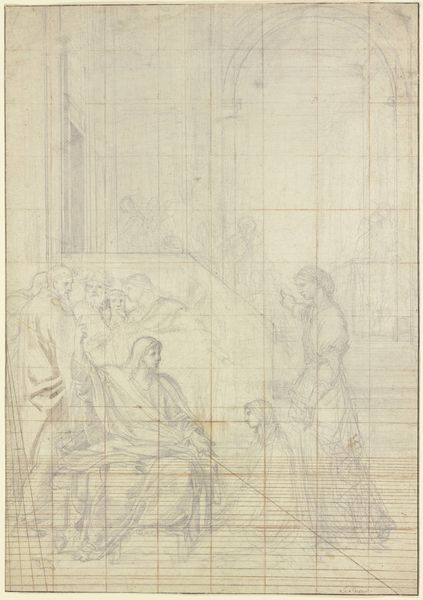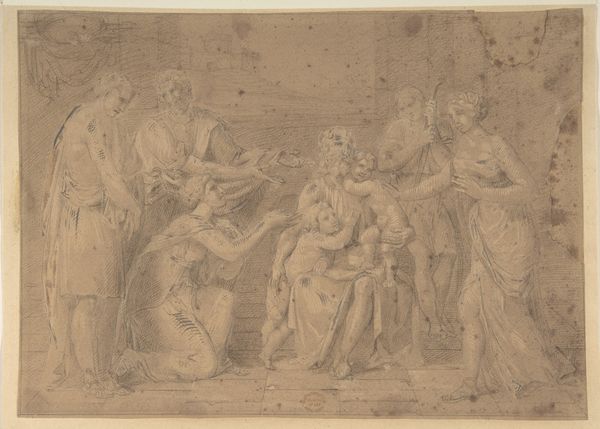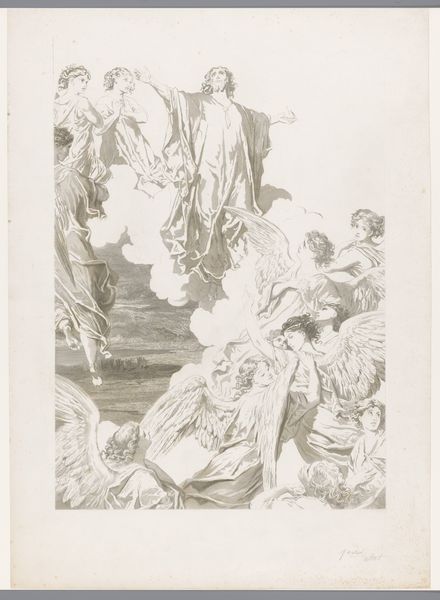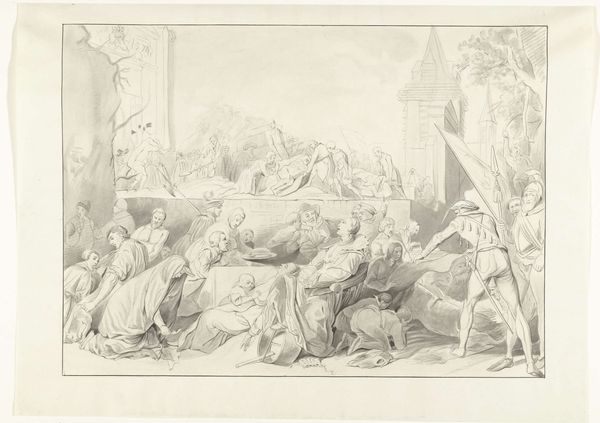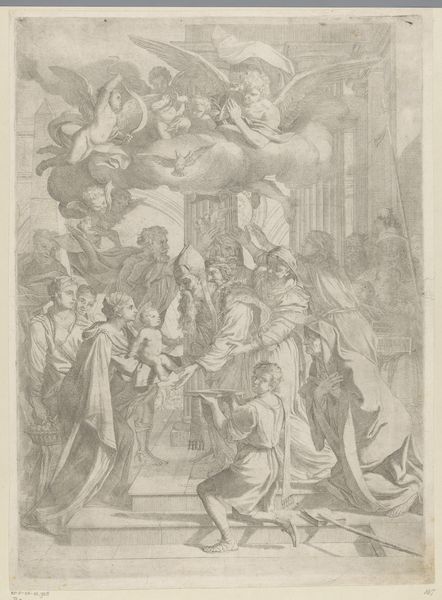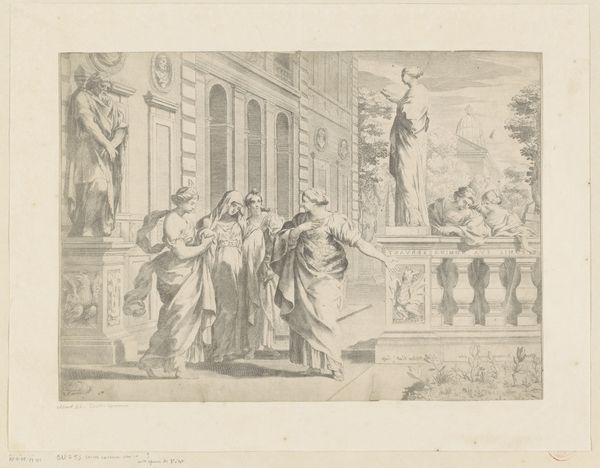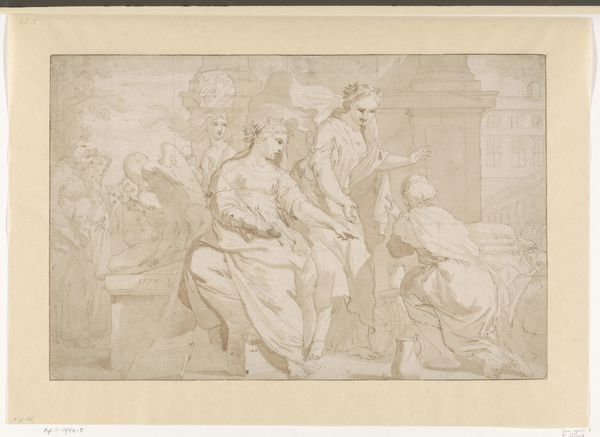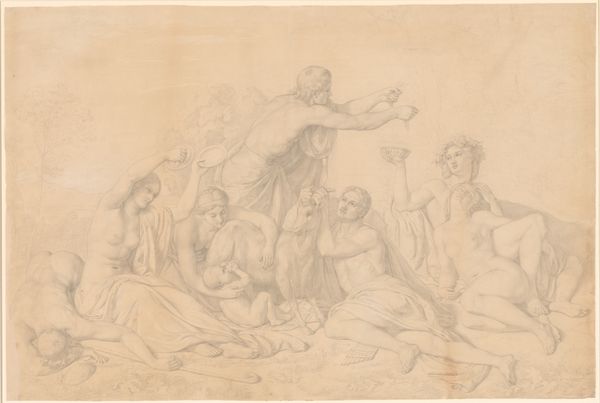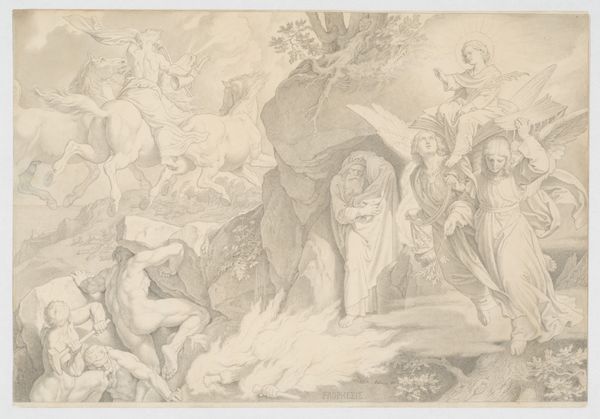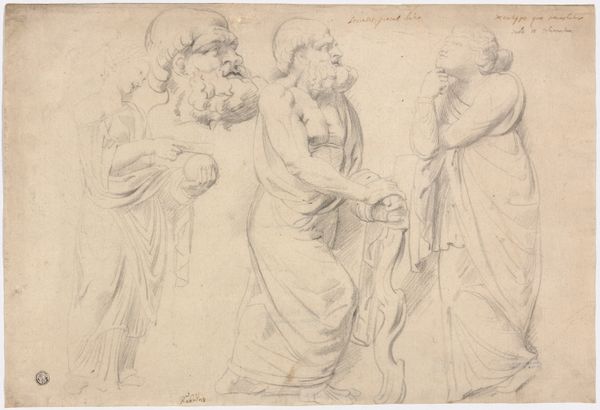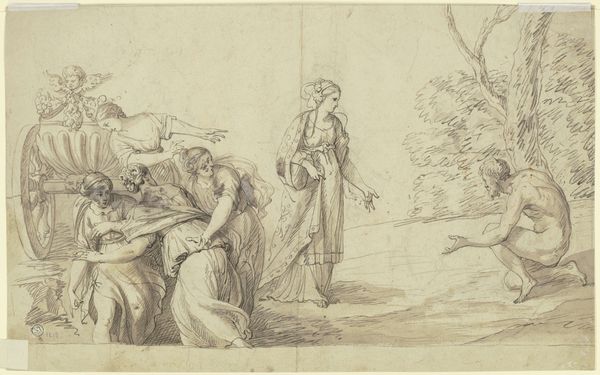
drawing, paper, pencil
#
drawing
#
narrative-art
#
classical-realism
#
figuration
#
paper
#
pencil drawing
#
pencil
#
history-painting
#
academic-art
Copyright: Public Domain
Gustav Heinrich Naeke made this pencil drawing, Elieser und Rebekka am Brunnen, in the early 19th century. It depicts a biblical scene where Rebekah offers water to Elieser at a well, highlighting themes of kindness and divine providence. In the context of early 19th century Europe, the imagery evokes a sense of moral virtue at a time when rapid social changes were taking place due to industrialization and urbanization. Artists frequently turned to religious narratives to reinforce traditional values. The neo-classical style used here, with its emphasis on idealized forms and clear composition, sought to promote order and rationality, mirroring the aspirations of the era’s cultural institutions. To fully understand this artwork, one might investigate the role of religious institutions in shaping social norms. This might include examining religious texts and sermons, as well as considering the influence of patronage on artistic production. Ultimately, the image reveals how artistic representations serve to negotiate and reinforce specific cultural values.
Comments
No comments
Be the first to comment and join the conversation on the ultimate creative platform.
